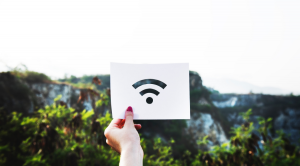Does VPN drain battery?
Every activity on a mobile device or laptop consumes battery power, and using a VPN (Virtual Private Network) is no exception. The encryption and decryption process is simple but requires computing power, which a VPN must perform every time you connect online. But the question is: How much battery power does a VPN consume? And should you care about this issue or not?
As you can see, applying a VPN service has only a negligible impact on battery usage. On devices where YouTube videos consume a large amount of power, the VPN's impact may be slightly greater, but still negligible.
For devices where video broadcasting does not use a VPN and consumes little power, you will essentially not be able to notice any impact of the VPN on power consumption.
Why does using a VPN drain your battery faster?
Using VPN services often means consuming more battery, because the VPN app has to do additional work every time data is transmitted or received over the internet. This stems from the nature of the VPN application, which involves always encrypting all data leaving the device and decrypting all data coming in.
This is unavoidable, because without this encryption, a VPN is just an insecure proxy. However, if you want to protect your internet connection from ISP (Internet Service Provider) observation or attackers on public Wi-Fi networks, there is no other way to achieve this. This.
If you're interested in other side effects of using a VPN, you might want to find out whether it slows down your internet speeds.
How to reduce VPN battery drain
1.Using Wi-Fi instead of mobile data is a way to save battery, because using mobile data often consumes more power. This is very easy to perceive.
2.When it comes to battery consumption, switching to WireGuard is the most efficient choice among VPN protocols. Switch to WireGuard if you haven't done so already.
3.Only use VPN when absolutely necessary: between options like Rice VPN you have the ability to only transfer a small portion of data through the VPN tunnel and disconnect when not needed, helping to save battery life.
4.Use a VPN router: if you're using Wi-Fi, why not let the router handle the VPN operations for you? This may not be the right choice if you don't have a mobile router.
5.If your phone is old, especially the battery, and can be replaced, consider changing the battery to maintain the best performance.
Why security is more important than battery
1.Stay protected on public Wi-Fi
While using free public Wi-Fi, you can hardly guarantee the safety of your personal data. However, when you enable a VPN, you don't need to worry about this.
2.Keep your browsing data private
Do you want your Internet service provider (ISP) to know all your online activities and be able to share that data? If the answer is "no," then using a VPN is necessary.
3.Keep your privacy online
Unless you actively disclose personal information or log in with an official account, your IP address is the only means of tracking your online activities. However, with a VPN, your real IP is completely hidden!
VPN is not something that kills your battery
A VPN uses some of your device's power because it's another running app, but it runs for a reason — to secure your data online.










